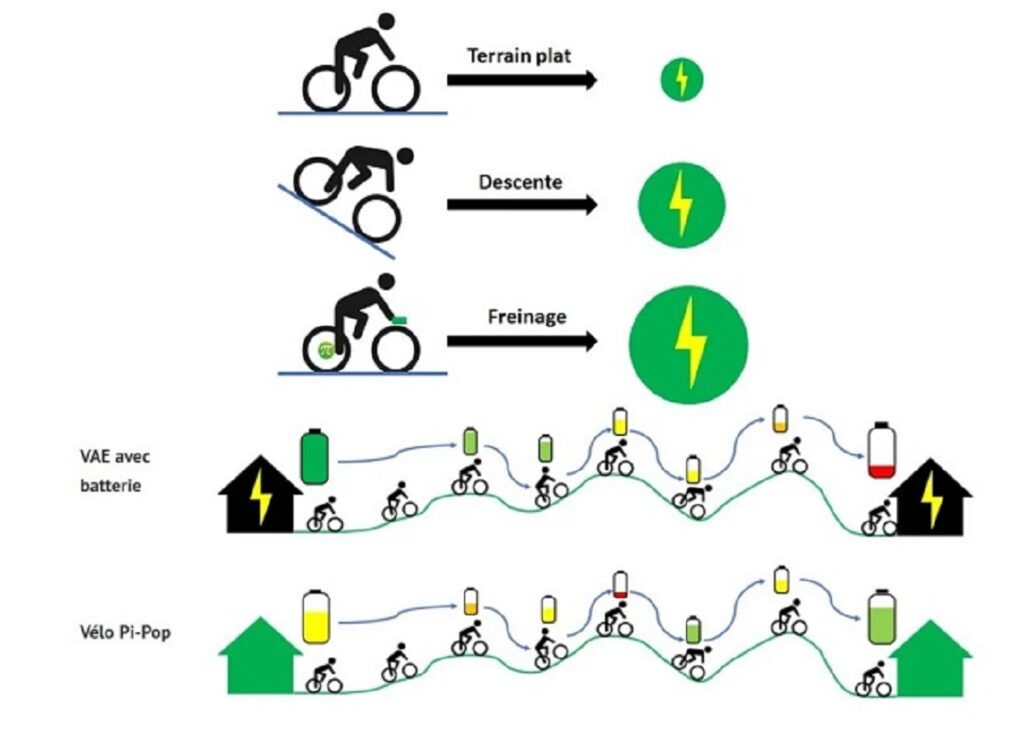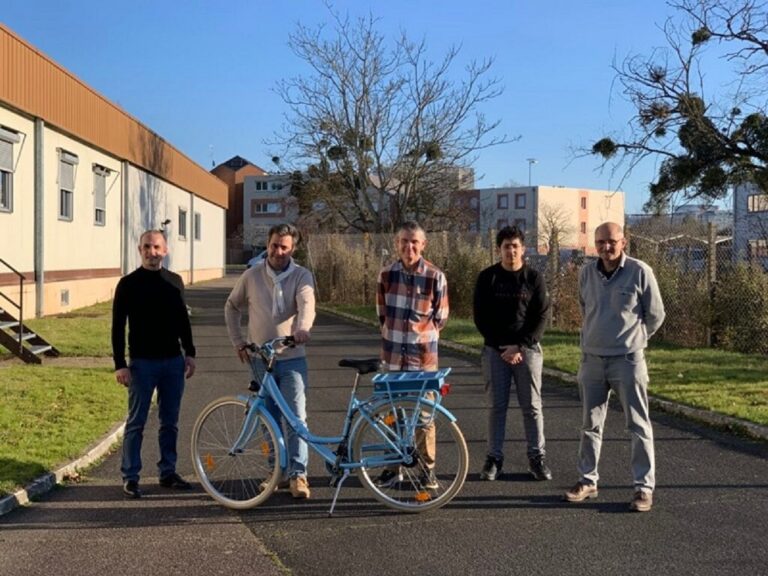The era of electric bikes burdened by polluting, non-recyclable batteries is nearing its end. This change is thanks to the innovation of a French manufacturer who has shifted focus to supercapacitors.
In Orléans, Loiret, the electric bike PI-POP emerges as the world’s first bike without batteries or the need for recharging. This innovation stands on the brink of transforming the biking landscape.
So, the burning question arises: How can a bike be electric without batteries or a charging mechanism? The secret lies in the bike being powered by supercapacitors. It took seven years of contemplation, research, and development to birth this eco-friendly concept.
As the Orléans-based company humorously puts it, this is “the world’s first electric-assist bike that needs… just you!”
A Bike Powered by a Supercapacitor Made from Easier-to-Recycle Materials

The magic happens when pedaling generates energy, which is then stored in the supercapacitor, allowing for a rapid recharge of the system. This stored energy can be unleashed for tasks like climbing hills. With the PI-POP electric bike, the days of plugging in to recharge are over; your pedaling recharges it.
This ingenious method is also greener than traditional electric bikes, whose batteries are made from rare, hard-to-recycle materials like lithium. The PI-POP bike’s supercapacitor is constructed from carbon, aluminum, cellulose, and polymers, all of which are more recyclable.
Moreover, its lifespan is significantly longer, estimated at 10 to 15 years compared to the 3 to 5 years for a standard battery. Opting for a greener electric bike does come with a price tag, however, at 2,450 euros.
This breakthrough signals a move towards more sustainable, environmentally friendly personal transport options, challenging the status quo and pushing the boundaries of what’s possible with electric mobility.






